第75章 X. FATHER DOUILLARD(2)
"That Minister," said he, "having been guilty of degrading cowardice in not exterminating the seven hundred Pyrotists with their allies and defenders, as Saul exterminated the Philistines at Gibeah, has rendered himself unworthy of exercising the power. that God delegated to him, and every good citizen ought henceforth to insult his contemptible government. Heaven will look favourably on those who despise him. 'He hath put down the mighty from their seat.' God will depose these pusillanimous chiefs and will put in their place strong men who will call upon Him. I tell you, gentlemen, I tell you officers, non-commissioned officers, and soldiers who listen to me, I tell you General of the Penguin armies, the hour has come! If you do not obey God's orders, if in His name you do not depose those now in authority, if you do not establish a religious and strong government in Penguinia, God will none the less destroy what He has condemned, He will none the less save His people. He will save them, but, if you are wanting, He will do so by means of a humble artisan or a simple corporal. Hasten! The hour will soon be past."
Excited by this ardent exhortation, the sixty thousand people present rose up trembling and shouting: "To arms! To arms! Death to the Pyrotists! Hurrah for Crucho!" and all of them, monks, women, soldiers, noblemen, citizens, and loafers, who were gathered beneath the superhuman arm uplifted in the pulpit, struck up the hymn, "Let us save Penguinia! They rushed impetuously from the basilica and marched along the quays to the Chamber of Deputies.
Left alone in the deserted nave, the wise Cornemuse, lifting his arms to heaven, murmured in broken accents:
"Agnosco fortunam ecclesiae penguicanae! I see but too well whither this will lead us."
The attack which the crowd made upon the legislative palace was repulsed.
Vigorously charged by the police and Alcan guards, the assailants were already fleeing in disorder, when the Socialists, running from the slums and led by comrades Phoenix, Dagobert, Lapersonne, and Varambille, threw themselves upon them and completed their discomfiture. MM. de La Trumelle and d'Ampoule were taken to the police station. Prince des Boscenos, after a valiant struggle, fell upon the bloody pavement with a fractured skull.
In the enthusiasm of victory, the comrades, mingled with an innumerable crowd of paper-sellers and gutter-merchants, ran through the boulevards all night, carrying, Maniflore in triumph, and breaking the mirrors of the cafes and the glasses of the street lamps amid cries of "Down with Crucho! Hurrah for the Social Revolution!" The Anti-Pyrotists in their turn upset the newspaper kiosks and tore down the hoardings.
These were spectacles of which cool reason cannot approve and they were fit causes for grief to the municipal authorities, who desired to preserve the good order of the roads and streets. But, what was sadder for a man of heart was the sight or the canting humbugs, who, from fear of blows, kept at an equal distance from the two camps, and who, although they allowed their selfishness and cowardice to be visible, claimed admiration for the generosity of their sentiments and the nobility of their souls. They rubbed their eyes with onions, gaped like whitings, blew violently into their handkerchiefs, and, bringing their voices out of the depths of their stomachs, groaned forth:
"O Penguins, cease these fratricidal struggles; cease to rend your mother's bosom!" As if men could live in society without disputes and without quarrels, and as if civil discords were not the necessary conditions of national life and progress. They showed themselves hypocritical cowards by proposing a compromise between the just and the unjust, offending the just in his rectitude and the unjust in his courage. One of these creatures, the rich and powerful Machimel, a champion coward, rose upon the town like a colossus of grief; his tears formed poisonous lakes at his feet and his sighs capsized the boats of the fishermen.
During these stormy nights Bidault-Coquille at the top of his old steam-engine, under the serene sky, boasted in his heart, while the shooting stars registered themselves upon his photographic plates. He was fighting for justice. He loved and was loved with a sublime passion. Insult and calumny raised him to the clouds. A caricature of him in company with those of Colomban, Kerdanic, and Colonel Hastaing was to be seen in the newspaper kiosks. The Anti-Pyrotists proclaimed that he had received fifty thousand francs from the big Jewish financiers. The reporters of the militarist sheets held interviews regarding his scientific knowledge with official scholars, who declared he had no knowledge of the stars, disputed his most solid observations, denied his most certain discoveries, and condemned his most ingenious and most fruitful hypotheses. He exulted under these flattering blows of hatred and envy.
He contemplated the black immensity pierced by a multitude of lights, without giving a thought to all the heavy slumbers, cruel insomnias, vain dreams, spoilt pleasures, and infinitely diverse miseries that a great city contains.
"It is in this enormous city," said he to himself, "that the just and the unjust are joining battle."
And substituting a simple and magnificent poetry for the multiple and vulgar reality, he represented to himself the Pyrot affair as a struggle between good and bad angels. He awaited the eternal triumph of the Sons of Light and congratulated himself on being a Child of the Day confounding the Children of Night.